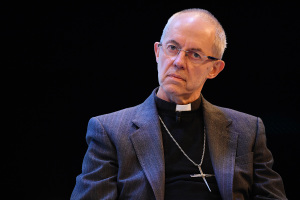How can Christians determine if something is ‘biblical or bogus’? Apologist gives 3 steps

A Christian apologist laid out three ways Christians can judge whether an idea is “biblical or bogus” in a speech that was part of a student-centered apologetics event in Allen, Texas.
Alan Shlemon, author and speaker with the apologetics group Stand to Reason, gave remarks at the reTHINK Apologetics Student Conference, held last week at Cottonwood Creek Church in Allen.
During his talk last Friday, Shlemon laid out three steps that help guard against false religious ideas.
The first step is to “seek to study scripture,” which involved reading the Bible. Shlemon told students that when they “come across an idea or some kind of claim, we need to test it against Scripture.”
The second step is to “seek wise counsel,” with Shlemon giving examples of parents, young group leaders, and pastors, among others.
“Chances are, you don’t know the Bible entirely, you don’t have perfect theology, you don’t understand the Christian worldview completely, and guess what? That’s OK. I don’t either. Nobody does,” he explained.
“But what that means is you can and should seek wise counsel. People who might be more biblically mature than you or walked with Jesus longer.”
Shlemon said his counsel was his boss, Stand to Reason founder and President Greg Koukl, who hosts a radio program that invites people to call in and ask spiritual questions.
The third and final step in determining the validity of an idea, according to Shlemon, is to “seek the consensus of historic Christianity.”
“What has the Church taught for 2,000 years?” asked Shlemon. “If the idea or the claim that I am considering right now is contradicted by 2,000 years of church history, or it is a completely new idea, then it causes me to become suspicious.”
He gave the example of the LGBT movement and how some churches have argued that the Bible does not actually condemn homosexuality or same-sex marriage.
Shlemon did acknowledge that Christians have been long divided on issues like the nature of the Lord’s Supper and how to properly perform baptisms.
“We have been divided on a whole bunch of things for hundreds if not thousands of years in some cases,” he noted. “But when it comes to the question of marriage and sex, all of the church, Protestant, Catholic, and even the Orthodox traditions, have been unanimous for 2,000 years.”
Shlemon’s comments were part of the Conference’s Friday evening first session, titled “reTHINK Your False Ideas About God.”
In addition to Shlemon, the session also featured Stand to Reason President Koukl and Tim Barnett, pastor at Cedarville Church of Newmarket, Canada.
Barnett focused on the Genesis account of the fall of man, explaining to those gathered that there were three steps the Serpent took in Genesis 3 to get Adam and Eve to eat the forbidden fruit.
The three steps of deception, Barnett said, were that “Satan questions what God has said,” “Satan denies what God has said,” and “Satan attacks who God is.”
“The fall of mankind didn’t actually begin when the first pair took their first bite. That is, it didn’t begin with a disobedient deed,” said Barnett. “Rather, it began with an incorrect idea. Specifically, the serpent, the devil, he planted false ideas in the minds of the original pair.”
Barnett went on to argue that these very strategies are still used in modern American culture to tempt Christians to not follow the Bible.
“If we ignore God’s word, we end up cutting ourselves off from truth about God. If we ignore what He said, we cut ourselves off from that truth,” he continued.
“And what happens is we begin to take our cues about God from the culture. … We don’t determine what God is like by looking to the culture.




























